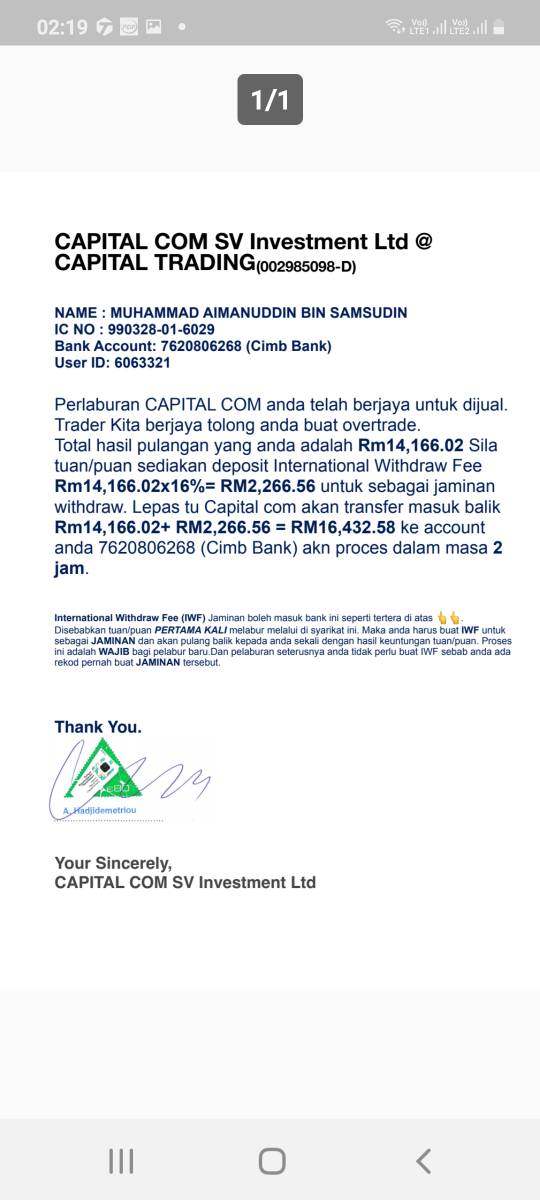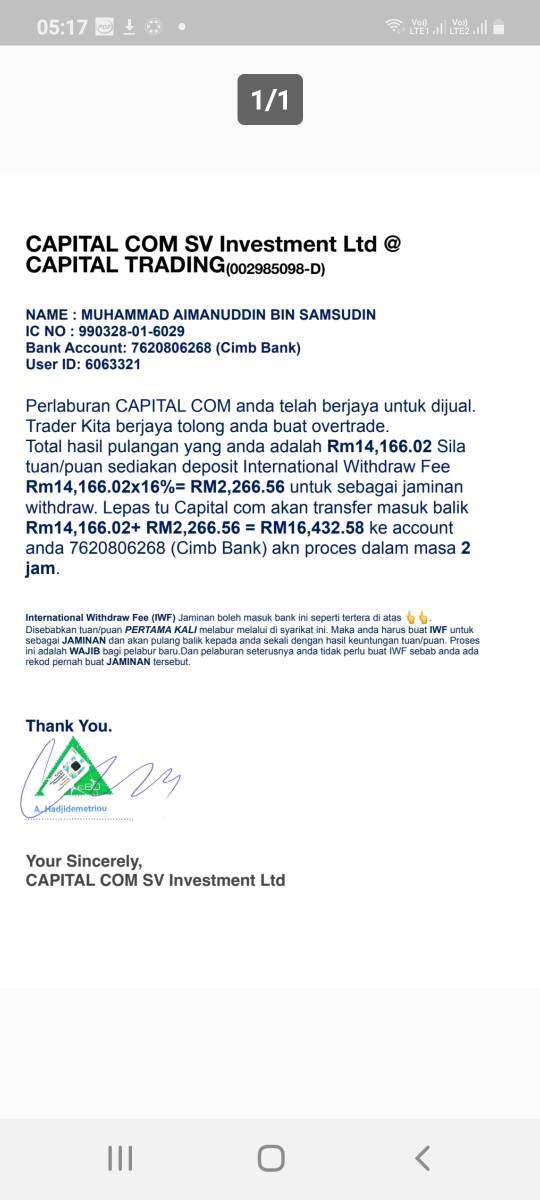Credit Suisse 2025 Review: Everything You Need to Know
Executive Summary
This credit suisse review examines one of Switzerland's most established financial institutions. Credit Suisse was founded in 1856 and has its headquarters in Zurich. The company operates as an international wealth management, investment banking, and financial services firm. It manages approximately $900 billion in assets under management with 47,860 employees worldwide. The institution primarily focuses on private banking, asset management, and shared services. Credit Suisse positions itself toward high-net-worth clients and institutional investors.
However, our analysis reveals mixed user feedback across multiple review platforms. According to PissedConsumer, Credit Suisse receives a concerning 1.4-star rating. TrustFinance assigns a TrustScore of 3.69. Trustpilot features 189 customer service reviews that highlight significant variations in user experiences. This disparity in ratings suggests inconsistent service quality and varying customer satisfaction levels across different service areas and regions.
The institution's extensive history and substantial asset management capabilities demonstrate financial strength and market presence. Yet, the polarized user feedback indicates potential challenges in service delivery and customer relationship management. Prospective clients should carefully consider these factors when evaluating Credit Suisse for their financial needs.
Important Notice
This review is based on publicly available information and user feedback collected from various review platforms and financial industry sources. Credit Suisse operates across multiple jurisdictions with different regulatory frameworks. Service quality may vary significantly between regions and service types. The information presented reflects general user experiences and may not represent the complete scope of services or current operational standards.
Our evaluation methodology incorporates user reviews, publicly disclosed company information, and industry analysis. However, specific regulatory details, account conditions, and trading platform information were not comprehensively available in the source materials reviewed. This may limit certain aspects of this assessment.
Rating Framework
Based on available information and user feedback, we evaluate Credit Suisse across six key dimensions:
Broker Overview
Credit Suisse stands as one of Switzerland's most historically significant financial institutions. The company was established in 1856 in Zurich. Credit Suisse has evolved into a global financial services powerhouse, specializing in wealth management, investment banking, and comprehensive financial solutions. With nearly two centuries of operation, the institution has built an extensive international presence. It manages approximately $900 billion in assets under management and employs 47,860 professionals worldwide.
The institution's business model centers on serving high-net-worth individuals and institutional investors through sophisticated financial services. Credit Suisse operates three primary business divisions. These include private banking services for affluent clients, asset management for institutional and individual investors, and shared services that support various operational functions. This credit suisse review indicates that the firm's strategic focus remains on premium client segments rather than retail trading services.
However, specific information regarding trading platforms, asset classes available for retail investors, and detailed regulatory oversight was not comprehensively detailed in available source materials. The company's traditional focus on private banking and wealth management may explain the limited publicly available information about retail trading services. This differs from the platforms that typical forex and CFD brokers provide.
Regulatory Oversight
Specific regulatory information was not detailed in the available source materials. As a Swiss-based institution, Credit Suisse operates under Swiss financial regulations and likely maintains various international regulatory compliance standards.
Deposit and Withdrawal Methods
The source materials did not provide specific information about deposit and withdrawal methods available to clients. These may vary significantly based on account type and client classification.
Minimum Deposit Requirements
Minimum deposit requirements were not specified in the available information. Given Credit Suisse's focus on high-net-worth clients, minimum thresholds are likely substantial.
No specific information about promotional offers or bonuses was available in the source materials reviewed for this credit suisse review.
Tradeable Assets
The available information did not detail specific tradeable assets or instruments available through Credit Suisse's platforms. It focused instead on broader wealth management and banking services.
Cost Structure
Detailed fee structures and trading costs were not specified in the source materials. Institutional-grade services typically involve complex fee arrangements based on asset levels and service types.
Leverage Options
Leverage ratios and margin trading information were not available in the reviewed source materials.
Specific trading platform information was not detailed in the available sources. This suggests Credit Suisse may not offer traditional retail trading platforms common among forex brokers.
Geographic Restrictions
Regional availability and restrictions were not specified in the source materials.
Customer Support Languages
Supported languages for customer service were not detailed in the available information.
Detailed Rating Analysis
Account Conditions Analysis
The available source materials do not provide comprehensive details about Credit Suisse's account types, structures, or specific conditions for different client segments. This credit suisse review cannot definitively assess account opening requirements, minimum balance thresholds, or account features without more detailed information from the institution.
Given Credit Suisse's positioning as a wealth management and private banking institution rather than a traditional retail broker, account conditions likely differ significantly from standard forex or CFD trading accounts. The institution's focus on high-net-worth clients suggests account requirements may involve substantial minimum investments and sophisticated qualification criteria.
The absence of detailed account information in publicly available sources may reflect the institution's emphasis on personalized service delivery rather than standardized account offerings. Prospective clients would likely need direct consultation with Credit Suisse representatives to understand specific account conditions and requirements.
Without specific user feedback on account opening processes or account management experiences, this evaluation cannot provide detailed insights into the practical aspects of maintaining accounts with Credit Suisse.
The source materials reviewed for this analysis do not provide specific information about trading tools, research resources, educational materials, or automated trading support offered by Credit Suisse. This limitation prevents a comprehensive assessment of the institution's technological capabilities and client support resources.
As a wealth management and investment banking institution, Credit Suisse likely provides sophisticated analytical tools and research capabilities. However, these may be primarily oriented toward institutional clients and high-net-worth individuals rather than retail traders. The absence of detailed information about trading platforms or tools suggests the institution may not compete directly in the retail trading market segment.
Without specific user feedback about research quality, platform functionality, or educational resources, this evaluation cannot assess how Credit Suisse's tools and resources compare to traditional forex and CFD brokers. The institutional focus may mean that available resources are highly specialized but not readily accessible to general retail clients.
Customer Service and Support Analysis
Customer service represents a significant concern area based on available user feedback. According to PissedConsumer, Credit Suisse receives a notably low 1.4-star rating. This indicates substantial dissatisfaction among users who have interacted with the institution's customer service operations. The rating suggests systemic issues in service delivery, response quality, or problem resolution capabilities.
The presence of 189 customer service reviews on Trustpilot indicates active user engagement and feedback. However, the specific content and sentiment of these reviews were not detailed in the source materials. The volume of reviews suggests either significant customer base activity or notable service experiences that prompted users to share feedback publicly.
The contrast between the extremely low PissedConsumer rating and the moderate TrustFinance TrustScore of 3.69 suggests inconsistent service experiences across different client segments or service areas. This variation may reflect differences in service quality between high-net-worth private banking clients and other customer categories.
Without specific information about customer service channels, response times, multilingual support, or service hours, this credit suisse review cannot provide detailed guidance on service accessibility or quality expectations for potential clients.
Trading Experience Analysis
The available source materials do not include specific user feedback about trading platform performance, order execution quality, platform stability, or mobile trading experiences. This absence of trading-specific information suggests that Credit Suisse may not primarily operate as a retail trading platform provider.
Without detailed information about platform functionality, execution speeds, or trading environment quality, this evaluation cannot assess how Credit Suisse compares to traditional forex and CFD brokers in terms of trading experience. The institution's focus on wealth management and private banking may mean that trading services, if available, are integrated into broader portfolio management offerings rather than standalone trading platforms.
The lack of specific trading experience feedback may also reflect the institution's client base characteristics. Trading activities might be managed through relationship managers rather than direct platform access. This approach would align with private banking models but differs significantly from retail broker operations.
Trust and Security Analysis
Credit Suisse's trust profile presents mixed indicators based on available information. The TrustFinance TrustScore of 3.69 suggests moderate trust levels. This indicates some foundation for client confidence but also room for improvement. The score reflects a middle-ground assessment that acknowledges both the institution's established presence and ongoing concerns.
The institution's 167-year operational history since 1856 and substantial $900 billion in assets under management demonstrate financial stability and market presence. These factors typically contribute positively to institutional trustworthiness and suggest robust operational capabilities and regulatory compliance.
However, the significant disparity between user satisfaction ratings on different platforms raises questions about consistency in service delivery and client relationship management. The extremely low PissedConsumer rating contrasts sharply with the moderate TrustFinance assessment. This suggests that trust levels may vary significantly based on client experience and expectations.
Without specific information about regulatory compliance, client fund protection measures, or recent regulatory actions, this analysis cannot provide comprehensive insights into Credit Suisse's current trust and security standing in the retail financial services market.
User Experience Analysis
User experience assessment reveals concerning patterns based on available feedback data. The PissedConsumer rating of 1.4 stars indicates substantial user dissatisfaction. This suggests significant issues in client interaction, service delivery, or expectation management. The low rating implies that many users encounter problematic experiences that prompt negative public feedback.
The presence of 189 reviews on Trustpilot indicates active user engagement with the platform's review system. However, the specific sentiment and content of these reviews were not detailed in the source materials. The volume suggests either a substantial user base or particularly notable experiences that motivate review submission.
The contrast between different review platform ratings suggests inconsistent user experiences across different service areas or client segments. This variation may reflect differences in service quality between various Credit Suisse divisions or geographic regions. Such patterns indicate potential operational inconsistencies.
Without specific information about user interface design, account management processes, digital platform functionality, or common user complaints, this evaluation cannot provide detailed insights into the practical aspects of the Credit Suisse client experience for potential users considering their services.
Conclusion
This credit suisse review reveals a complex picture of an established financial institution with significant historical presence but notable challenges in contemporary service delivery. While Credit Suisse's 167-year history and $900 billion in assets under management demonstrate substantial institutional strength and market experience, user feedback indicates considerable room for improvement in customer service and client satisfaction.
The institution appears best suited for high-net-worth individuals and institutional investors seeking comprehensive wealth management services rather than retail traders looking for standard forex or CFD trading platforms. The lack of detailed information about trading platforms and retail services suggests Credit Suisse operates primarily in the private banking and institutional investment space.
The primary advantages include the institution's extensive experience, substantial asset management capabilities, and established market presence. However, significant disadvantages emerge from consistently poor customer service ratings and apparent inconsistencies in client experience quality across different service areas and platforms.









